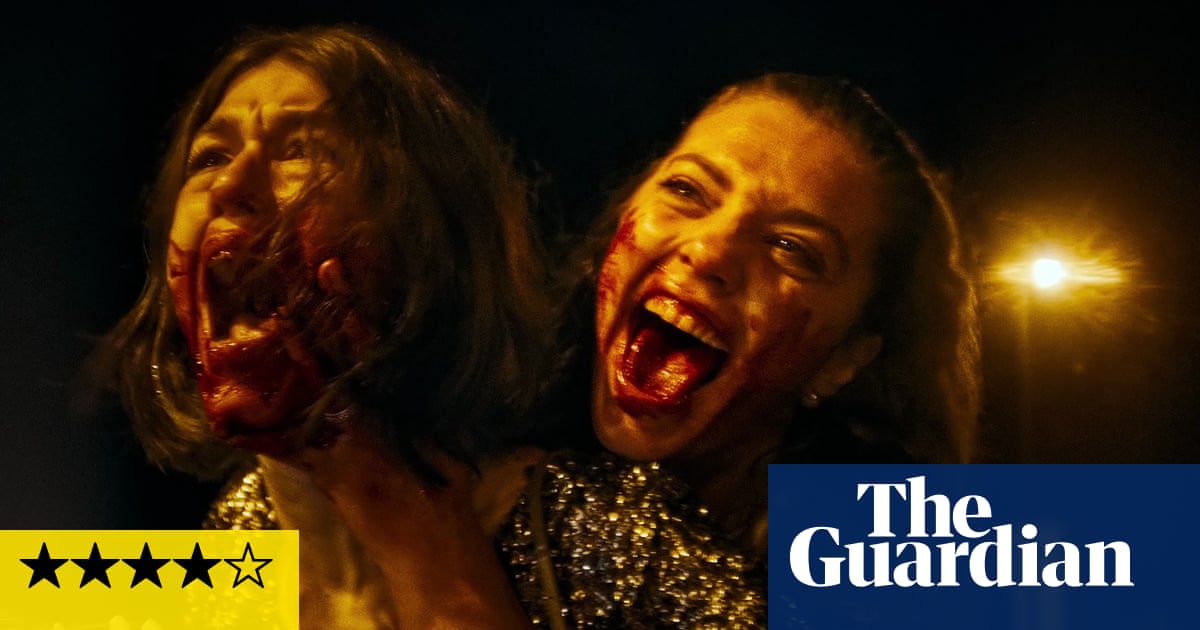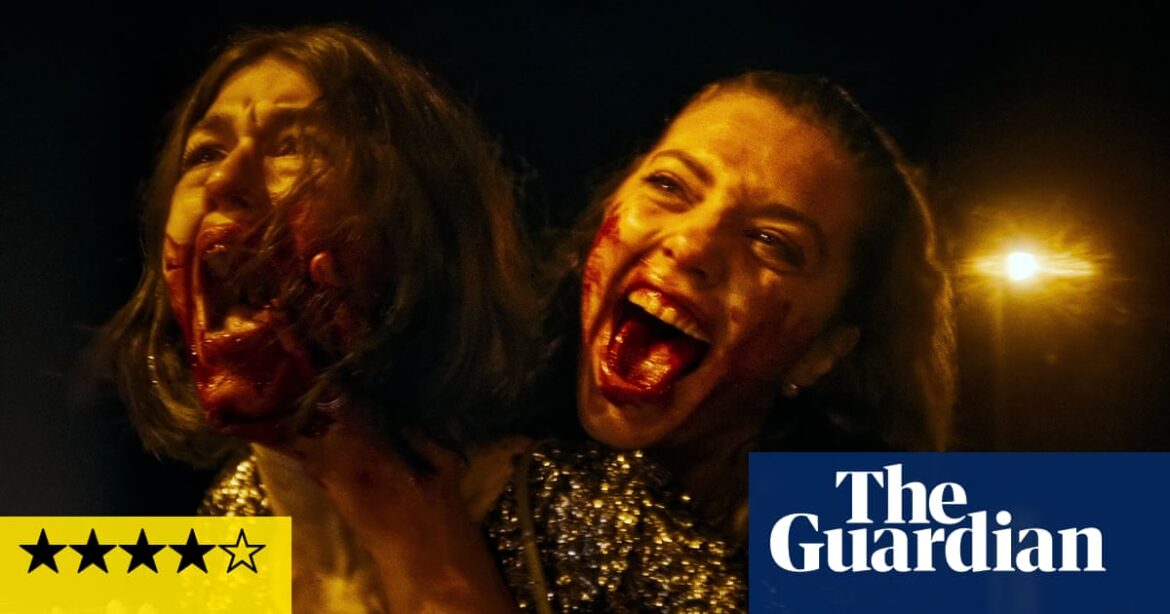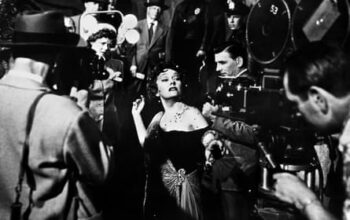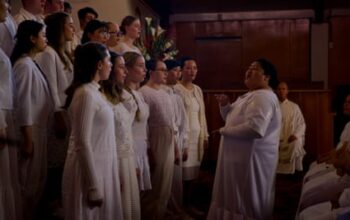
You’re young, you’re high, you’re carefree, you’re tooling around in daddy’s best car … when a heavily bandaged and bleeding young woman jumps into your borrowed ride, unable to speak and in a state of panicked frenzy. What do you do? Teenager Romain (Milton Riche) panics right back at her, and so begins a fantastic exercise in tension and mood, with director David Moreau (Them) maintaining a strong sense of momentum even as the film skates by on the loosest of narratives.
This sense of momentum is aided by the choice to shoot the film in one take. Or rather, the appearance of one take; inevitably there are joins but, as with Hitchcock’s Rope, they are hidden as much as possible. It does not take too long to become apparent that some sort of viral outbreak is afoot, perhaps a relative of the virus that plagued humanity in 28 Days Later. We realise this a little ahead of Romain, however, which gives the film time for him to turn a house party into a super-spreader event.
None of this plot detail conveys the sheer style and flair of MadS, which elevates it above the majority of low-budget horror. Philip Lozano’s skilled camerawork is wonderfully fluid, at times balletic. This may be a direct-to-streaming release, but the craft on display really deserves to be seen on the big screen. At the same time, the visual style is not so slick that you lose the sense of scrappy immediacy; there’s a sense that you’re right there with the characters on the wildest (and mostly last) night of their lives.
The zombie genre, which this film just about fits into by the bloodied skin of its beat-up teeth if you squint a bit, has a rich history of downbeat conclusions, from Night of the Living Dead onwards. MadS honours this tradition – sort of – but in an interesting way. While there’s a strong sense throughout that this isn’t a storyworld in which the cavalry are waiting just over the hill to save the day, the film has so much energy that its overall tone is fundamentally invigorating; this is the cinema of euphoric nihilism, and it’s a welcome return to form for Moreau.
Source: theguardian.com



